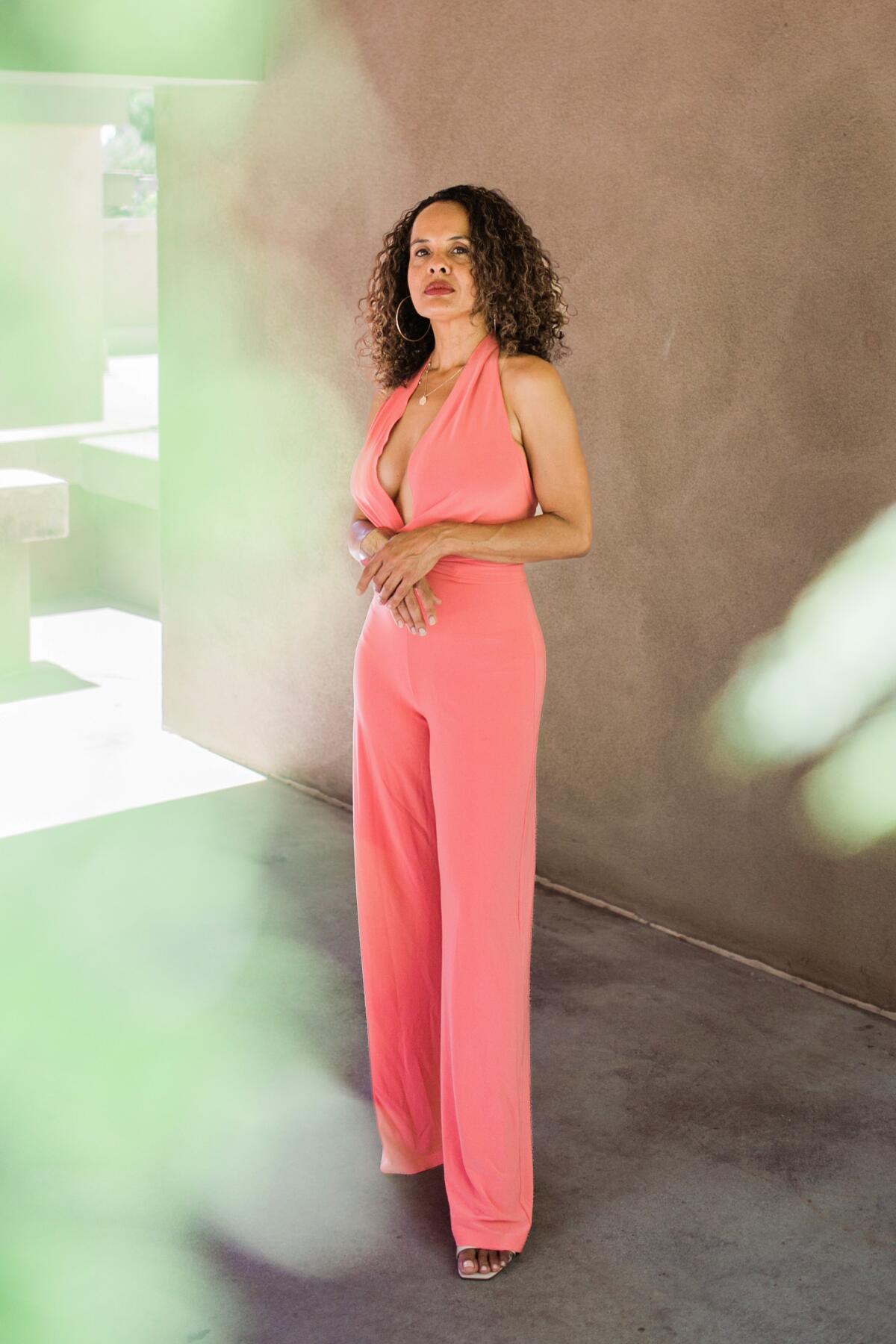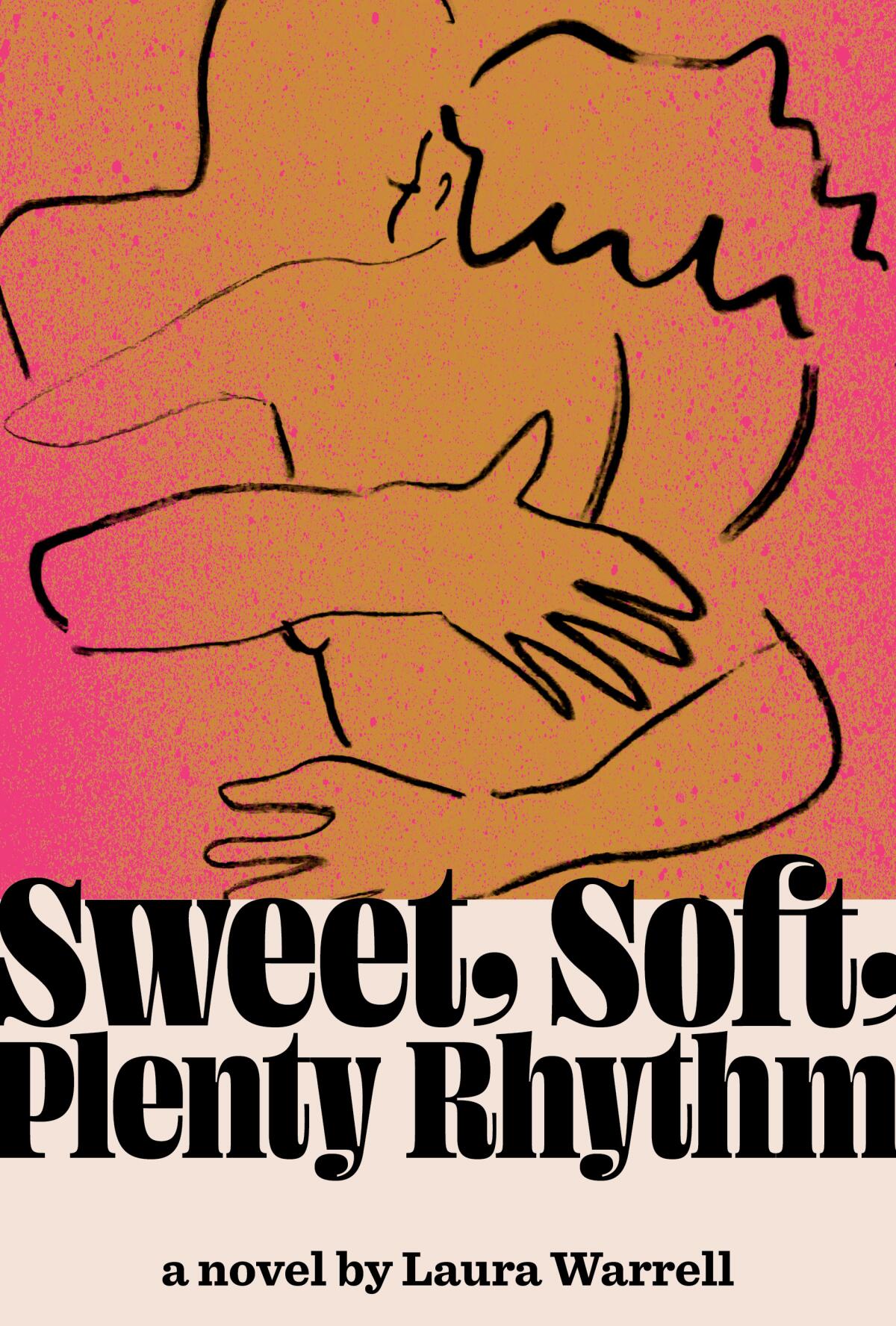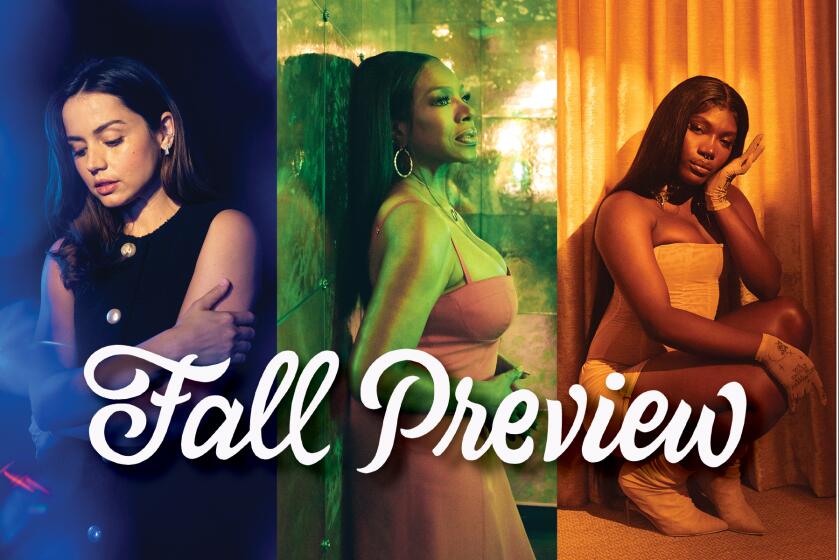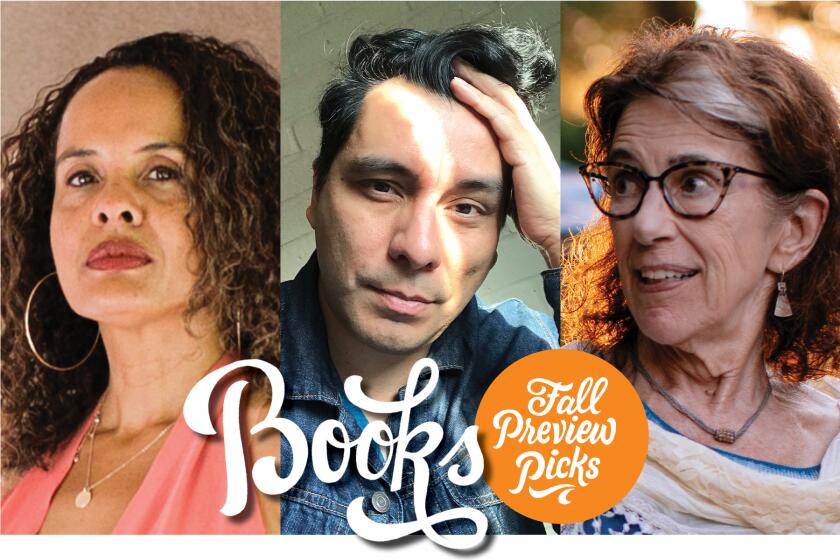L.A. novelist Laura Warrell on the music and heartbreak that inspired her debut

- Share via
Fall Preview Books
Sweet, Soft, Plenty Rhythm
By Laura Warrell
Pantheon: 368 pages, $28
If you buy books linked on our site, The Times may earn a commission from Bookshop.org, whose fees support independent bookstores.
After years of being heartbroken and disappointed by musicians, Laura Warrell finally added them, alongside bartenders and skateboarders, to her list of “Off Limits Men.”
“These are the guys that are never going to commit,” said Warrell, 51. Her last long involvement with a musician ended around 2013, just as she was beginning to write her debut novel, “Sweet, Soft, Plenty Rhythm.”
Out in late September, the major fall release tells the story of jazz musician Circus Palmer and the many women he charms and devastates, including his teenage daughter. It was the first book Lisa Lucas acquired after she assumed leadership of the storied Pantheon and Schocken Books.
Fall arts and entertainment picks from music, books, TV, arts and movies.
In a recent interview in her Los Feliz neighborhood, Warrell spoke of men, women and inspiration; the conversation has been edited for length and clarity.

What inspired the novel?
It was a similar situation where I wanted something from the relationship that I wasn’t going to get and I wasn’t walking away, and I knew that he had other women in his life.
Writers talk about writing because they want to understand their own life experiences. I also wanted to make sure I did a good job of humanizing Circus and making clear why he’s compelling to these women, but I also feel frustration when anyone from a marginalized community is included in a story and their humanity is glossed over in favor of centering a character we have always centered.
So it came more from a desire to tell the story of women who have and will continue to be in relationships like this.
Kareem Abdul-Jabbar celebrates the cultural oasis that was Central Avenue in Los Angeles.
The plot unfolds through the voices of these wronged women. Why did you structure it that way?
[I wanted] the women to each have a moment in the spotlight, but I think it also mirrors music, particularly jazz, where you’ve got an ongoing rhythm, which you could call the narrative thread in a novel, that’s consistent throughout, and you’ve got each player taking a solo — taking that initial harmony and doing something with it that’s their own.
That’s how I think of the structure. All the women, even Koko, his daughter, are seeking an experience and a connection that they’re not getting, and so each of them is taking a solo and talking about what that’s like and how it has impacted their lives.
The latest from Ling Ma, Yiyun Li, Russell Banks and Namwali Serpell as well as exciting newcomers round out our critics’ most anticipated fall books.
Why did you choose jazz as the novel’s milieu?
It’s a very intricate, complex, challenging genre of music, which would make Circus, as a person who has devoted his life to it, more interesting and more fascinating to women.
The sacrifices you have to make to be a good jazz musician suggest to me a unique kind of heart, psyche, spirit that I thought would make an intricate character to explore. I also like the idea that jazz doesn’t hold the position in culture that it used to. One of the things Circus confronts throughout the book is people asking him, “Why do you play jazz? Who’s listening to jazz anymore?”
Even though the book is about the women, I wanted the reader to understand why they were gravitating toward him; it wasn’t just that he was handsome and sexy but that he was fascinating, because this is how I feel about jazz.
More to Read
Sign up for our Book Club newsletter
Get the latest news, events and more from the Los Angeles Times Book Club, and help us get L.A. reading and talking.
You may occasionally receive promotional content from the Los Angeles Times.









